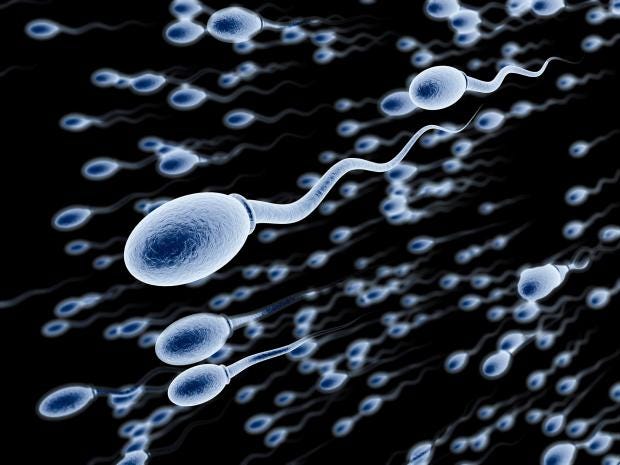Health - NEWS - Contraceptive gel that creates ‘reversible vasectomy’ shown to be effective in monkeys
The gel is injected into the vas deferens, the duct between the testicles and the urethra

Vasalgel allows seminal fluid to be released during ejaculation but blocks sperm, which are reabsorbed by the body istock
An injectable contraceptive gel that acts as a ‘reversible vasectomy’ is a step closer to being offered to men following successful trials on monkeys.
Vasalgel is injected into the vas deferens, the small duct between the testicles and the urethra. It has so far been found to prevent 100 per cent of conceptions. The gel fills the interior of the passage, allowing seminal fluid to be released during ejaculation but blocking sperm, which are reabsorbed by the body.
Researchers said the latest test, on a group of 16 rhesus monkeys, showed the product was “safe and produced fewer complications than usually occur with a vasectomy”. The gel, previously tested in rabbits, can be removed by flushing the duct with a baking soda solution.
“Although it is possible to reverse a vasectomy, it is a technically challenging procedure and patients often have very low rates of fertility following reversal,” said lead scientist Catherine VandeVoort, from California National Primate Research Centre. “Vasalgel shows real promise as an alternative to vasectomy because research in rabbits has previously shown the product to be reversible.”
A traditional vasectomy involves cutting and sealing off the vas deferens. Complications can include infection, bruising and lumps of leaked sperm forming in the surrounding tissue.
One of the treated monkeys showed signs of sperm granuloma, this hard build-up of sperm in the vas deferens, which affects around 60 per cent of men undergoing a vasectomy and is non-serious. Clinical trials of Vasalgel, developed by non-profit Parsemus Foundation in Berkeley, California, are expected to begin next year. The first trials will be limited to men who accept that they may become sterile, because researchers cannot guarantee that the procedure is reversible until a separate study has taken place.
Darren Griffen, professor of genetics at the University of Kent, said an effective reversible male contraceptive treatment had the “potential to revolutionise this field of medicine”, but questioned whether the necessity of injection might limit its take-up among humans. Adam Balen, chair of the British Fertility Society, said: “this novel approach has the potential for great promise as a male contraceptive.” Professor Balen emphasised the importance of proving the techique’s ongoing reversibility, as did Allan Pacey, Professor of Andrology at the University of Sheffield.
In order for it to have a chance of replacing the traditional surgical method of vasectomy, the authors need to show that the procedure is reversible and it’s reassuring that apparently such studies are ongoing,” said Professor Pacey. “It’s interesting that there has been very little commercial interest from pharmaceutical companies in this kind of a approach and so the idea of a social venture company to develop the idea is intriguing,” he said. “I would imagine there is a worldwide market for a new male contraceptive, but trials in humans and more long-term safety data are required before we will know if it is a success.”
A similar experimental contraceptive injection, called Risug, has been developed and tested in India.
It works by impairing sperm cells as they swim from the testicles to the urethra, unlike Vasalgel, which blocks the sperm from passing through the tube. Around 11,000 men had a vasectomy in England in 2014-15, according to NHS Digital – a drop from around 30,000 ten years previously. Experts have suggested this could be because couples are having children later.
Source: The Independant
